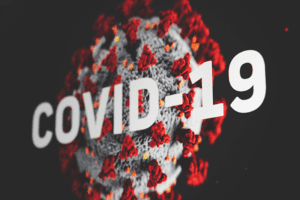
[Photo by Martin Sanchez on Unsplash]
NYU Abu Dhabi researchers say they have a new rapid COVID-19 testing method using an adhesive bandage.
This bandage uses gold nanoparticles to quickly detect the immune antibodies in the bloodstream. SARS-CoV-2 infection naturally produces these antibodies, known as IgM and IgG. They serve as valuable biomarkers to identify infected individuals and monitor the spread of pandemics.
Associate Professor of Mechanical Engineering and Bioengineering Mohammad Qasaimeh led the NYU Abu Dhabi research team. They had their work published in a paper in the journal Microsystems and Nanoengineering.
“Our goal is to contribute to improved diagnostics and help individuals with their health management, ultimately enhancing our ability to combat and control infectious diseases on a global scale,” said Imen Boumar, one of the first authors of the study and a former research assistant in Qasaimeh’s Group.
How the COVID-19 testing bandage works
According to NYU, the innovative bandage technology is affordable and easy to use. The researchers said it can be modified “in no time” to detect other pathogenic infections in future pandemics. This bandage can simply use antigens specific to the emerging pathogens to identify infections.
A patient would use the disposable at-home test by applying the special adhesive bandage to a pinprick fingertip just like they would use a regular bandage to cover and protect wounds. The bandage works in conjunction with nanotechnology-based engineered tiny particles — gold particles — measuring one-billionth of a meter in diameter.
These nanoparticles have specific keys, called antigens, attached to them. Those antigens are unique to SARS-CoV-2 and the keys are engineered using nanotechnology approaches to recognize and bind to IgM and IgG antibodies with high specificity and sensitivity, paralleled with key-lock mechanisms.
When the binding takes place, a color change flags the individual’s infection status. The bandage produces results for “not infected” or “infected” with “early immune,” “active immune” or “immune responses.”
Results come within minutes, the NYU researchers say. The technology could enable large-scale detection and screening across a range of settings.